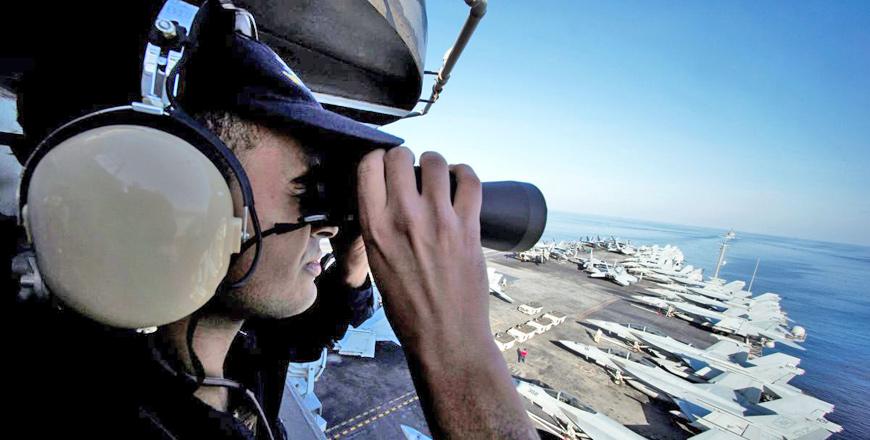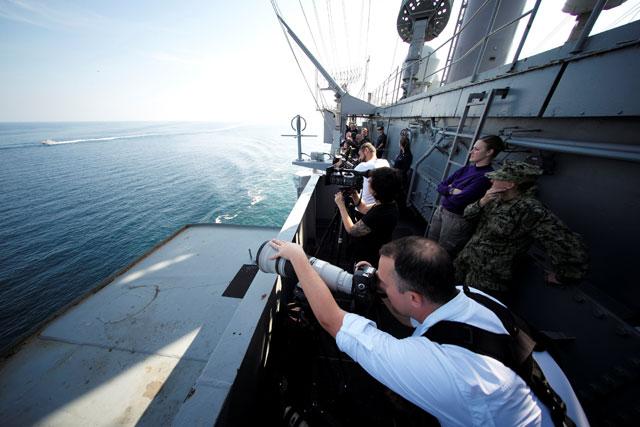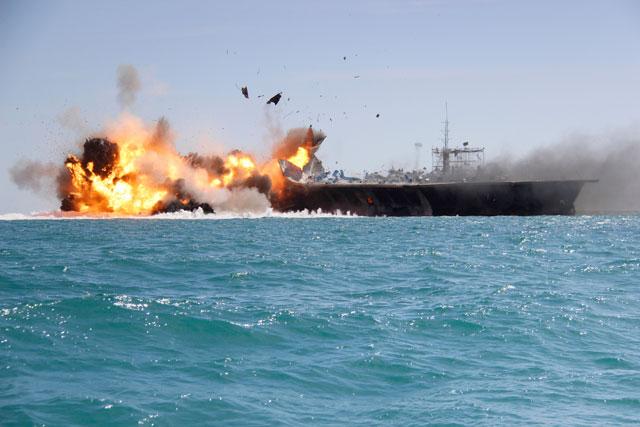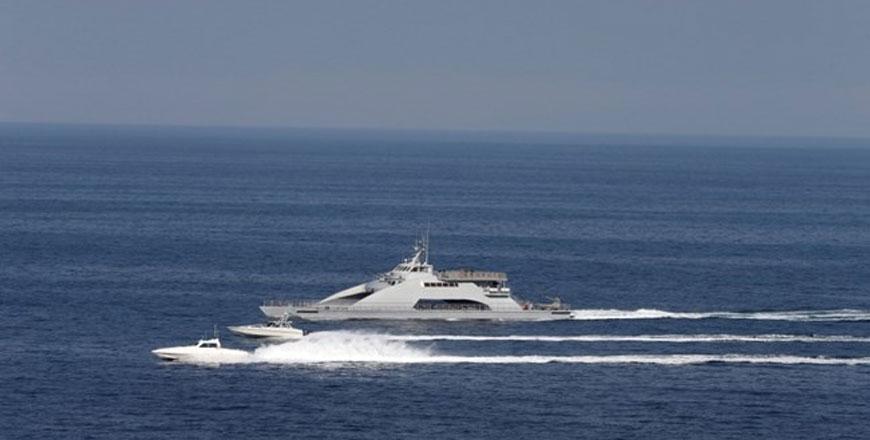You are here
Iran says ready to respond, but US aircraft carrier no threat
By Reuters - Dec 24,2018 - Last updated at Dec 24,2018

A US sailor keeps watch from the captain's bridge onboard the USS John C. Stennis as it makes its way to the Gulf through the Strait of Hormuz on Friday (Reuters photo)
LONDON —Iran is ready to respond to any hostile US action, but it does not consider the arrival of a US aircraft carrier in the Gulf last week a significant threat, an Iranian navy commander said on Monday.
The USS John C. Stennis entered the Gulf on Friday, ending a long absence of US aircraft carriers in the region as tensions rise between Tehran and Washington.
“The presence of this warship is insignificant to us,” Rear Admiral Habibollah Sayyari was quoted as saying by the semi-official ISNA news agency.
“We will not allow this warship to come near our territorial waters in the Persian Gulf,” said Sayyari.
Sayyari said the US navy was allowed to sail in international waters near Iran, just as the Iranian navy could sail in the Atlantic Ocean near US waters.
He said, however, that Iran was on alert for possible threats. “They do not have the courage or ability to take any measures against us. We have enough capabilities to stand against their actions and we have fully rehearsed for that.”
Iran’s elite Revolutionary Guard launched war games in the Gulf on Saturday in which naval vessels, helicopters, drones, rocket launchers and commando units took part.
Praising the “success” of the war games, guards’ spokesman Brigadier General Ramezan Sharif said on Monday: “The Persian Gulf and the Gulf of Oman has had more safety and security in the last 10 months in the absence of a US aircraft carrier.”
A US-Iranian war of words has escalated since US President Donald Trump took Washington out of a world powers’ nuclear deal with Iran in May, and reimposed sanctions on its banking and energy sectors.
Iran has warned that if it cannot sell its oil due to US pressures, then no other regional country will be allowed to do so either, threatening to block the Strait of Hormuz in the Gulf.
A third of the world’s sea-borne oil passes through the Strait from Middle East crude producers to major markets.
In recent years, there have been periodic confrontations between the Revolutionary Guard and US military in the Gulf, but the number of incidents has dropped in recent months.
Related Articles
DUBAI — Iran’s elite Revolutionary Guard launched war games in the Gulf on Saturday, state television reported, after a US aircraft car
With rockets roaring and guns blazing, more than a dozen swarming Iranian speedboats assaulted a replica of a US aircraft carrier Wednesday during large-scale naval drills near the strategically vital entrance of the Persian Gulf.
LONDON — Iran's Revolutionary Guard said on Monday they plan to upgrade their speed boats in the Gulf with radar-evading stealth techno

















